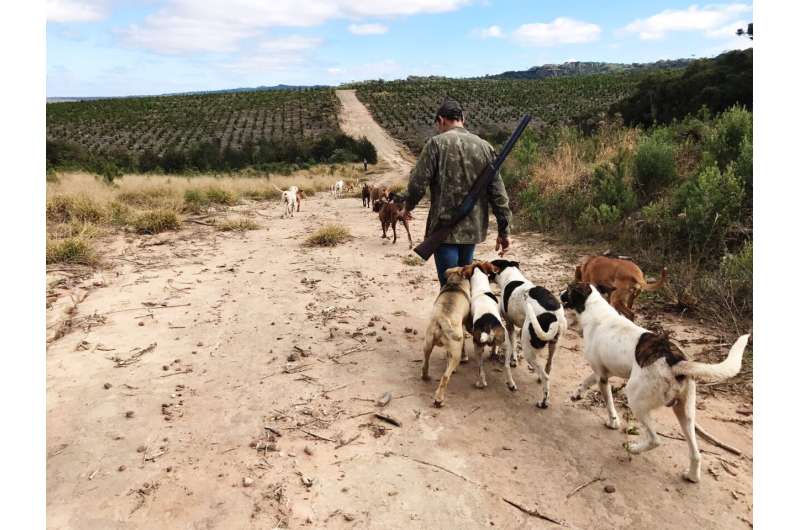Wild boars, hunting dogs and hunters carry tick-borne bacteria

Rickettsia bacteria cause a number of human and animal infections, including Rocky Mountain spotted fever. Now, researchers reporting in PLOS Neglected Tropical Diseases have for the first time surveyed the prevalence of Rickettsia antibodies and Rickettsia-carrying ticks in wild boars, hunting dogs and hunters in Brazil.
Most Rickettsial infections are spread through ticks, mites, fleas or lice. Rickettsia rickettsii, the main pathogen causing spotted fever in Brazil, is transmitted to humans by Amblyomma ticks. Few details have been available on the occurrence of ticks and Rickettsia in wild boar populations, or how boars may spread the bacteria to human populations.
In the new work, Alexander Biondo, of the Federal University of Paraná, Brazil, and colleagues collected blood samples and ticks from 80 free-range wild boars, 170 hunting dogs and 34 hunters from southern and central-western Brazil between 2016 and 2018. Blood samples were tested for the presence of anti-Rickettsia antibodies, tick species were identified, and a subset of ticks were tested for Spotted Fever Group Rickettsia.
A total of 1,584 Amblyomma ticks of three species were collected from wild boars; all 9 ticks on hunting dogs were Amblyomma aureolatum and all 22 from hunters were Amblyomma sculptum. 72.5% (58/80) of wild boars were positive for Rickettsia antibodies; 14.1% (24/170) of hunting dogs; and 14.7% (5/34) of hunters. 164 ticks were tested for Spotted Fever Group Rickettsia but none were positive. Differences between Rickettsia rates in central-western versus southern Brazil were not statistically significant in this study.
"Wild boars may be carrying and spreading capybara ticks from their original habitats to other ecosystems," the researchers say. "These results may provide important findings for public action planning to prevent neglected vector-borne diseases in overlapping areas of wild boars, hunting dogs and hunters."
More information: Kmetiuk LB, Krawczak FS, Machado FP, Paploski IAD, Martins TF, et al. (2019) Ticks and serosurvey of anti-Rickettsia spp. antibodies in wild boars (Sus scrofa), hunting dogs and hunters of Brazil. PLOS Neglected Tropical Diseases 13(5): e0007405. doi.org/10.1371/journal.pntd.0007405



















